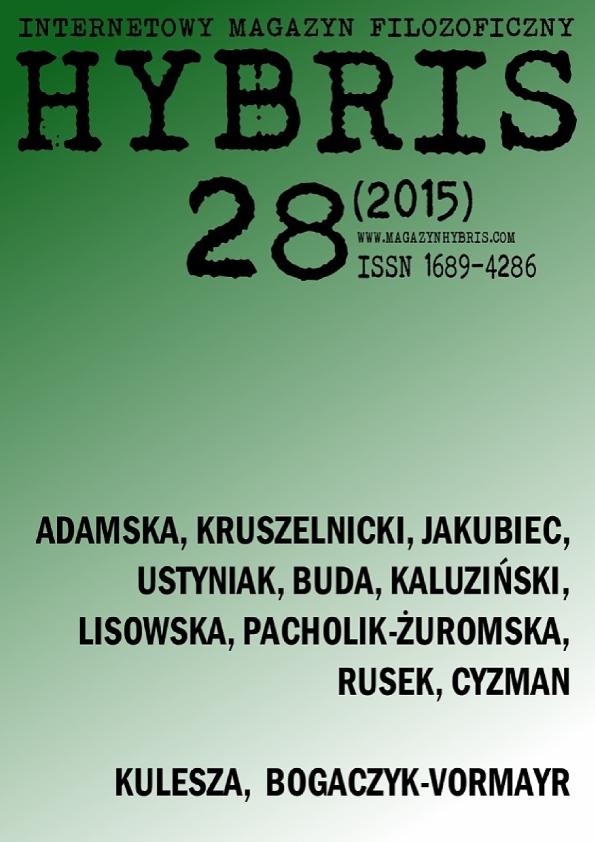CIERPIENIE, ROZDARCIE, NIESPEŁNIENIE: DESTRUKCYJNY EROS W DZIELE F. DOSTOJEWSKIEGO
SUFFERING, ANUISH, DISTRESS: THE DESTRUCTIVE EROS IN THE WORK OF FYODOR DOSTOEVSKY
Author(s): Michał KruszelnickiSubject(s): Russian Literature, Existentialism, Philosophy of Religion, Philosophy of Language
Published by: Wydawnictwo Uniwersytetu Łódzkiego
Keywords: Fyodor Dostoevsky; eroticism; destructive Eros; death; suffering; distress; spirituality; Georges Bataille;
Summary/Abstract: My paper discusses the idea of destructive eroticism in the work of Fyodor Dostoevsky. Eros is posited here as manifesting in two, opposite forms: the Christian virtue of agape consisting in a humble service to a beloved person, and the Greek eros which in Dostoevsky is transformed into destructive love, one steeped in egoism and sadistic-masochistic impulses. I want to argue that destructive eroticism is for Dostoevsky of greatest interest, while love conceived as agape serves in his work only as a minor, normative projection, a tribute paid to the Russian Orthodox worldview. In my analysis I refer to Georges Bataille’s philosophical thought to combine the pattern of unfulfilled and ruinous love in Dostoevsky with his conviction that irrational aspects of man, his penchant to evil and transgression can be seen as a measure of the intensity and authenticity of one’s spiritual life. Contrary to religious interpretations of Dostoevsky, I argue that the author of Crime and Punishment prefers to cast his protagonists into the limbo of suffering, anguish and distress and therefore he ultimately rejects the possibility that human beings can content themselves with a mediocre life in which existential complacency is bought at a price of resignation from dangerous passions of which one could say that were “worth a life”.
Journal: Internetowy Magazyn Filozoficzny HYBRIS
- Issue Year: 2015
- Issue No: 28
- Page Range: 12-44
- Page Count: 33
- Language: Polish

